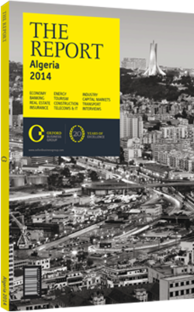OBG talks to Yiğit Gürçay, Senior Vice-President and Area Director – MENA, GlaxoSmithKline

Interview: Yiğit Gürçay
What benefits can multinational pharmaceutical companies derive from expanding local production activities in emerging markets?
YIGIT GÜRÇAY: Multinational pharmaceutical companies can play critical roles in emerging markets, not only in improving access to medicines and quality care, but also in expanding economic opportunities in those countries. Business activity leads to the creation of more jobs by hiring local employees, enables technology transfer, develops human capabilities by investing in young, valuable graduates and builds physical infrastructure. By expanding local production activities in emerging markets, multinational pharmaceutical companies contribute to the variety and availability of products and services, and play a positive role in development.
In Algeria, there are three main types of advantages investors can benefit from. First, investments are protected, as drugs manufactured and marketed in the country can be supported through certain import prohibitions. Second, the government offers an accelerated registration process and access to the market within six months of submitting an application. Third, firms can collaborate with the government on drug policy, which creates a mutually beneficial partnership.
What are Algeria’s comparative advantages in terms of the production of pharmaceuticals?
GÜRÇAY: The Algerian government’s policy to expand the economy by focusing on the development of strategic industry and service sectors aims to address the country’s dependence on oil revenues and to diversify the local market. The pharmaceuticals sector is one of the key drivers of this trend and a focus area of development. Algeria’s policy is to boost local manufacturing to decrease health expenses, enable technology transfer and develop local human capabilities. Pharma is a diversified industry that requires multiple competencies and it can benefit from Algeria’s university graduates. Being part of this development strategy allows companies to access tax benefits, eases access to land ownership in identified development zones, and enables firms to benefit from the growth in turnover and market share due to import bans. It also allows them to quickly register manufactured products and to have access to privileged partnerships with government institutions. The strategic geographic location of Algeria, as well as its very good relationships with other countries in the MENA region, offers many advantages for export-oriented activities.
What measures could help to ease the registration process for the pharmaceuticals sector?
GÜRÇAY: The current objective is not to facilitate the registration process, but to make it more efficient. The Algerian authorities, especially in the health sector, are aware of the issues, and consequences, of the situation they are facing. Through their local representatives, pharmaceutical companies are working with the health authorities to develop new regulations and processes that would ensure rapid and secure access to the market. The Algerian government is doing its best to improve the framework to allow more companies to invest.
What potential is there to expand research and development (R&D) in the sector?
GÜRÇAY: R&D in the pharmaceutical industry is very important. In Algeria, the evolution of medical research must necessarily be linked to R&D for drugs. There are two key areas for promoting research and drug development: clinical research and partnerships with universities. Clinical research in Algeria is still insufficient, unlike some emerging countries. The potential is there through existing university hospitals; however, greater regulatory and technical support must be provided for these facilities. We are aware that Algeria can be a key partner in the development of clinical research. Regarding partnerships with universities, such institutions can cooperate on the development of new drugs. This is an opportunity to pursue as it would guarantee sustainable growth and further development of knowledge.
You have reached the limit of premium articles you can view for free.
Choose from the options below to purchase print or digital editions of our Reports. You can also purchase a website subscription giving you unlimited access to all of our Reports online for 12 months.
If you have already purchased this Report or have a website subscription, please login to continue.

